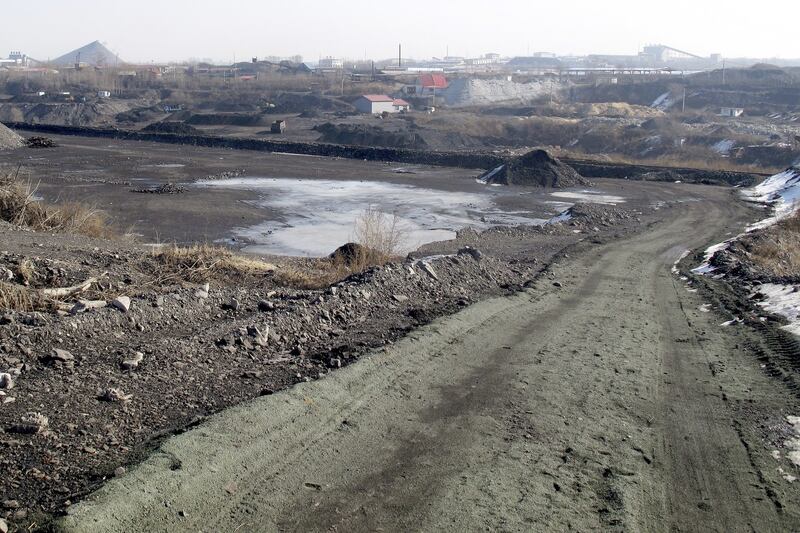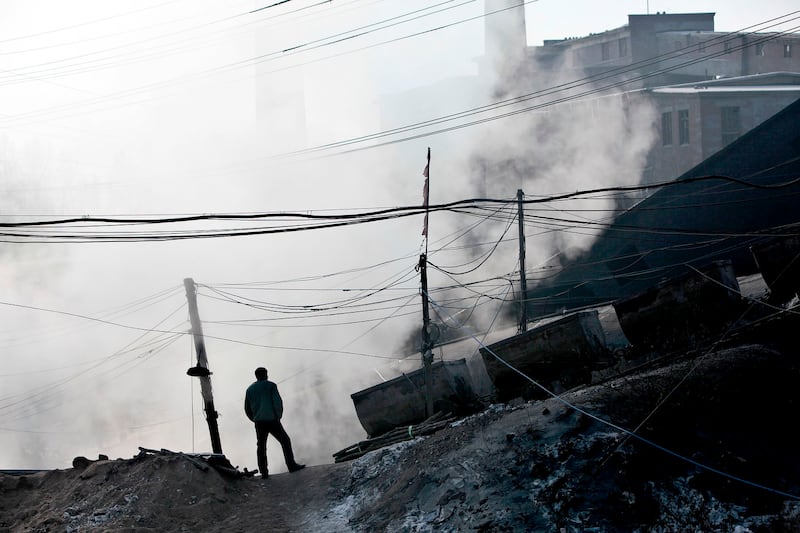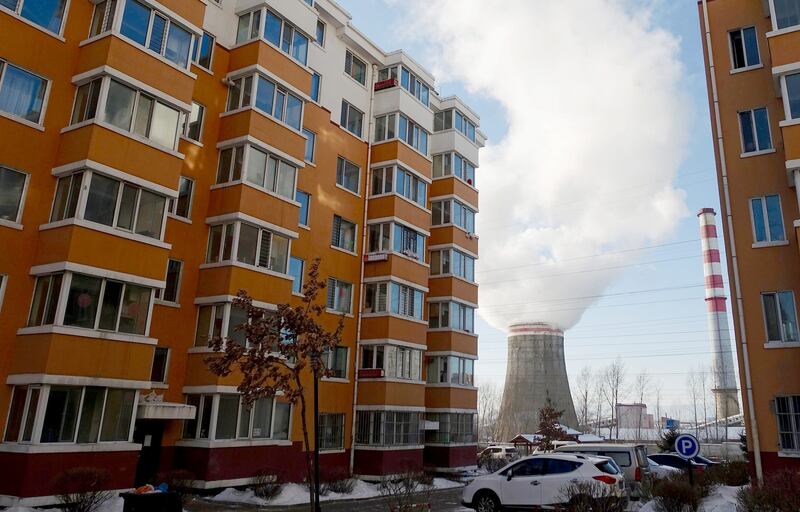Authorities in the northeastern Chinese city of Hegang have announced a hiring freeze as the city faces massive debt, amid an inability to fully pay those already on its payroll.
"Due to the Hegang municipal government's fiscal readjustment in the face of major changes in the fiscal situation ... [we are] canceling grass-roots recruitment of employees for government departments," the city government's human resources department said in a social media post last week.
The post was deleted over the weekend after it prompted massive comment and speculation on Chinese social media platforms,
Hegang's finances have been in severe difficulty for some time, with spending cuts introduced in June 2021 in a bid to contain the problem, which has been exacerbated by the recent closures of coal mines, the city's former industrial base.
The news comes amid growing interest in civil service jobs in China, with an increase of nearly a quarter in national civil service examination registrations in 2021, compared with last year.
And Hegang isn't the only local government in potential trouble. Every province except Shaanxi had seen a rise in its debt-to-GDP ratio by June 2020, the South China Morning Post cited official figures as saying.
Last September, a Goldman Sachs report said local government debt had risen to some 52 percent of GDP, with 53 trillion yuan owed via local government financing vehicles at the end of 2020.
Chinese current affairs commentator Li Li said Hegang has also had to contend with falling property prices and high unemployment in the past year, while the government has already cut civil service salaries in a bid to keep existing staff.
"Civil servant salary cuts are happening everywhere this year," Li said. "Hegang is remote and the economy underdeveloped, and property is going for a song; you can barely give it away."

'Tip of the iceberg'
Li warned: "Hegang is just the tip of the iceberg; the economy is doing so badly across the whole country right now; it's unbelievable."
Current affairs commentator Xiang Wei said Hegang is likely on the verge of bankruptcy.
"There's been the decline in housing prices, the civil servant hiring freeze, and even cuts in the number of existing civil servants," Xiang told RFA. "This all indicates financial difficulties."
"Hegang is on the verge of bankruptcy right now."
Hegang currently has a population of 980,000, with debts amounting to more than 13.1 billion yuan last year, an increase of more than 1.5 billion yuan over the previous year, making a per capita debt of 13,000 yuan.
Wang Jing, a resident of the northeastern province of Jilin, said the region's retail and service industries have been decimated by the COVID-19 pandemic, causing local government tax revenues to plummet.
"The economy has been in recession since the pandemic, as everything started to shut down, and employers have been unable to pay wages," Wang said. "The real estate market is collapsing, and local governments are in deficit, hence the layoffs."
Hegang's difficulties come amid civil servant wage cuts in Zhejiang, Jiangsu, Guangdong, and Shanghai. with the salary of a Shanghai police station chief slashed from 350,000 yuan per annum to 200,000 yuan this year.
Social media posts have reported that Shanghai, Jiangxi, Henan, Shandong, Chongqing, Hubei and Guangdong have all suspended civil servant bonuses or asked employees to repay them, while housing subsidies and performance bonuses were rolled back in Guangdong's Chaozhou and Shanwei cities.

Tight finances after pandemic
Writer and researcher Tan Zuoren said he could confirm the reports.
"Civil servant performance bonuses have been canceled or even reclaimed in around seven, eight or 10 provinces, with some officials ordered to return bonuses already paid out," Tan said.
"Government finances are pretty tight, for a number of reasons ... especially the pandemic, which has caused a fall in tax revenues and increased expenditure at the same time," he said.
Commentator Rao Yiming said that will leave more than 80 percent of civil servants on a basic wage of 3,000-5,000 a month, shorn of the many bonuses and housing subsidies that made their lives more comfortable.
"Performance and subsidies account for more than 60 percent of civil servants' income, so this will widens the income gap between coastal and inland civil servants," Rao said.
"The southeast coast has ample financial resources, and it's not uncommon for civil servants in that region to receive year-end performance awards of 100,000-200,000 yuan, while some counties and cities in the [poorer] central and western regions in financial difficulties will only pay out between 3,000 and 50,000 yuan, and some nothing at all," he wrote in a recent commentary for RFA's Mandarin Service.
Scholar Li Ang said the current belt-tightening will mean that the ruling Chinese Communist Party (CCP) will prioritize paying military and police salaries, while the income of other civil servants could drop at any time.
"They give priority to the army and the police," Li said. "If they don't, then they may not be able to maintain social stability."
"Ordinary civil servants protesting or criticizing them won't do them any harm."

Translated and edited by Luisetta Mudie.
